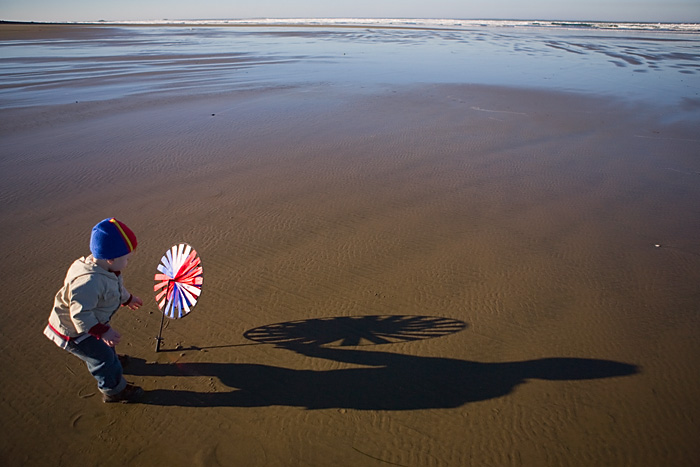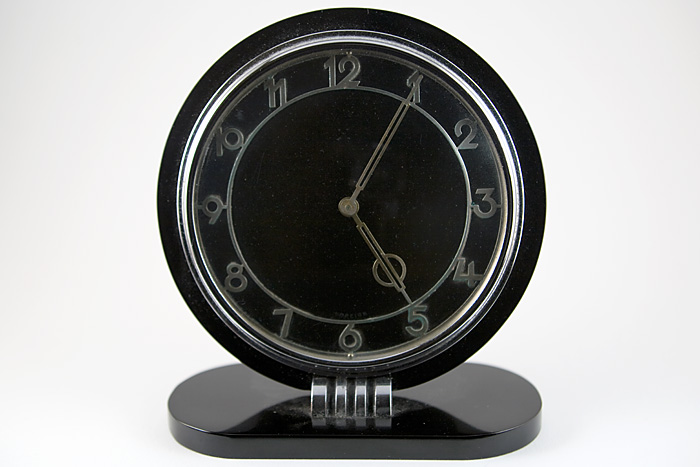-
Paintings of alchemists in their laboratories. Posted to Flickr by the Chemical Heritage Foundation.
-
"People went to Google to find specific information about the President-Elect and the ceremony. People go to Twitter and Facebook to share the experience with one another. That means, Twitter and Facebook are delighting users more than Google, because they are keyed into natural human needs and emotions that trigger far greater and more addictive endorphin rushes than just finding a piece of information." [via msippey]
-
Tom Armitage on journalists learning to code: "Learn to think like a programmer. What's really important is to not understand how to do magical things with code, but to learn what magical things are possible, what the necessary inputs for that magic are, and who to ask to do it." [via rc3.org]
-
"None of which is saying you shouldn't be talking to your sources, and questioning what you're told, and trying to find other means of finding stuff out from people. But nowadays, computers are a sort of primary source too. You've got to learn to interrogate them effectively - and quote them meaningfully - too." [via migurski]
-
A Belkin employee used Amazon's Mechanical Turk to hire people to write positive reviews of a Belikin product they'd never used. The funny part is that Amazon is one of the companies he scammed. [via waxy]
Sunny Newport


-
How to move SQL Server full-text catalogs to a different drive.
TurkSmith
You've probably seen Microsoft's Songsmith by now. It's a program that makes backing music like a Casio keyboard I had as a kid. You pick a style of music such as rock, jazz, or (my old favorite) bossa nova and you get chords and rhythm that changes keys as you press different notes on the keyboard. The innovation with Songsmith is that the software automatically detects your pitch as you sing into the computer. So instead of pressing keys to make the background music change pitch, Songsmith detects the pitch changes in your voice and tries to make the generated music fit. You can see how this could get hilarious quickly. And it did on MetaFilter: Microsoft Songsmith, and then even more hilarious when someone piped David Lee Roth sans Halen into SongSmith with spectacular results: Runnin' With The Songsmith. And don't miss the stupendous Microsoft Songsmith Commercial.
This morning I was thinking about Songsmith, computer automation, and Mechanical Turk. I've thought Mechanical Turk is a terrible idea since I first heard about it in 2006: Mechanical Turk, so I don't want to encourage more experiments with it. But after Andy revealed The Faces of Mechanical Turk, I can't help but wonder if someone could reveal the voices of Mechanical Turk. I wonder if you could break up a song into pieces like Francois Macre's A capella Thriller and farm it out to Turkers. (Not that anyone should do that.) But even that is a copy of something that already existed. Maybe having Turkers write a small piece of music that could be assembled into a whole piece would be a better experiment. Finding a way to have actual humans mass-compose music seems like it would be more interesting than teaching computers to write better music. Tagged: half-baked.
This morning I was thinking about Songsmith, computer automation, and Mechanical Turk. I've thought Mechanical Turk is a terrible idea since I first heard about it in 2006: Mechanical Turk, so I don't want to encourage more experiments with it. But after Andy revealed The Faces of Mechanical Turk, I can't help but wonder if someone could reveal the voices of Mechanical Turk. I wonder if you could break up a song into pieces like Francois Macre's A capella Thriller and farm it out to Turkers. (Not that anyone should do that.) But even that is a copy of something that already existed. Maybe having Turkers write a small piece of music that could be assembled into a whole piece would be a better experiment. Finding a way to have actual humans mass-compose music seems like it would be more interesting than teaching computers to write better music. Tagged: half-baked.
-
A W3C validator for mobile sites.
-
Nice roundup of design trends for phones. [via magnetbox]
-
A short introduction to MetaFilter for the uninitiated.
Lightbox Experiment
I had some fun playing around with a lightbox for the first time today. I didn't have anything I wanted to take a picture of, but I enjoyed moving lights around and fiddling with camera settings anyway. Here's a clock that had some crazy reflective surfaces:

And a shot with a black background (that I needed to crank down some in Photoshop anyway):

I've been wanting to try out this type of lighting ever since I read an article about building your own box on Strobist: DIY $10 Macro Photo Studio. I didn't build this lightbox myself, but it's the same basic idea.
The best part is that objects don't move. So I could put the camera on manual, close the aperture, and set a long shutter speed. I spend 90% of my camera time taking pictures of a high-speed toddler in low light. This was a nice change of photographic pace. And if I ever decide to sell something on eBay I'll be set for pictures if it fits in the box.

And a shot with a black background (that I needed to crank down some in Photoshop anyway):

I've been wanting to try out this type of lighting ever since I read an article about building your own box on Strobist: DIY $10 Macro Photo Studio. I didn't build this lightbox myself, but it's the same basic idea.
The best part is that objects don't move. So I could put the camera on manual, close the aperture, and set a long shutter speed. I spend 90% of my camera time taking pictures of a high-speed toddler in low light. This was a nice change of photographic pace. And if I ever decide to sell something on eBay I'll be set for pictures if it fits in the box.
-
Matt's new cycling blog.
-
Nice way to let people browse extremely large photos with the Google Maps API.
-
This is a nightmare. But it's a good reminder to change your passwords if they're simple dictionary words.
-
"...asking users to input their email address and password from a third-party site like GMail or Yahoo Mail is completely unacceptable." This is still so true, and I'm surprised sites like Facebook haven't been shamed into changing their "Find People" features.
-
More photography in unusual environments: "When it thinks it's falling, the hard drive heads park themselves to prevent damage upon impact. Unfortunately, in zero gravity, the camcorder always thinks it's falling." [via waxy]
-
The hazards of commercial photography: "The doorway was about 12 feet away from the unit, so although I would be in the magnetic field, it wasn't strong enough to pull the camera off of my tripod."
Sunday at the Aquarium
Some scenes from the Oregon Coast Aquarium today.